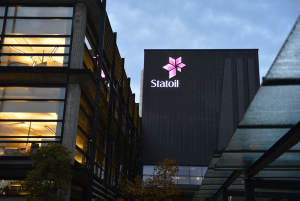
Statoil has been trying crack Utgard’s code since 1982.
Now 34 years later, the Norwegian giant has submitted a field development plane (FDP) for the discovery, which straddles the North Sea divide between the UK and Norway.
Tom Elseth, who is the prospect’s project director said: “We are extremely glad to submit FDP to the UK authorities, because it’s not every day we get the chance to sanction a project.
“This has been a discovery since 1982. We have had it up for decision several times, but now we have managed to get a robust economy in the project.”
The successful delivery comes down to three things, including technological advancements and a market downturn, according to Elseth.
“Both the economy and the technological solutions were the reasons it was stopped last time,” he said.
“Now we have managed to find simple cost effective solutions and managed to get a good economy on this.
“What we see now is a different process – a process that passes sanction in the different companies. All of the investors are looking for the right projects to invest in.
“I think if we hadn’t had the economy we have now we would have most likely postponed it even more.
“Now we have reduced the cost of each and every part of the project and that goes for the pipeline, the subsea facility and the drilling costs.”
The final piece to the puzzle was viewing the North Sea and its infrastructure in its entirety, not as a UK and Norway divide – taking a more “holistic approach”.
The regions sandstone’s don’t stop at the medium, so why should Statoil, he said.
The Utgard development will include two wells in a standard subsea concept, with one drilling target on each side of the median line. All installations and infrastructure are located in the Norwegian sector, the UK well will be drilled from the subsea template on the Norwegian continental shelf.
“In all my dialogue with the Norwegian and UK authorities they have been proactive and positive about this,” Elseth added.
“Obviously we don’t have many projects that cross over the divide.
“By looking at the North Sea and not taking into account the borderline we can use the infrastructure in a more cost effective way and get more developments on stream.”
Utgard’s FDP is Statoil’s first of the year.
But more than providing a much-needed industry morale boost, the project serves as an example of what can be achieved in similarly hard-to-crack development’s like the UK’s Bressay discovery – a discovery Elseth said the team is still trying to make economical sense of.
“We have portfolio with a break-even of $41, which is good and we’re actually working to improve it further,” Elseth said.
“There are some positive sides in this project, but it will take time before it’s realised in the market.
“But I think it’s important for Statoil that we look at the NCS and UKCS in a proactive way.
“We’re going to be here a long time and do that in the most stable and efficient way.
“We do see the dip in the market. In tough times we do our job to make sure we can have production as long as possible to secure the work that is in place and generate more value from the network we bring along.”
To read when Statoil will tender for project contracts click here.
Recommended for you
